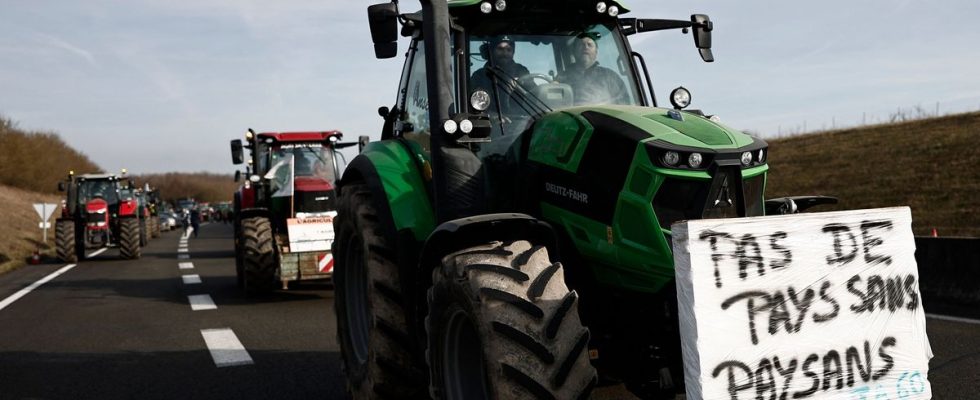After Gabriel Attal’s beautiful “declaration of love” on Friday in Haute-Garonne and a first basket of measures taken on a bale of straw, it is clear that the farmers are not satisfied. They are now demanding “proofs of love”, numerous and almost as varied as there are production sectors and regions in France. Here are some of the main demands of the profession.
An exemption on the 4% fallow
This measure was introduced in the new Common Agricultural Policy (CAP). To be able to receive European aid, it theoretically requires farmers to leave 4% of their surface area fallow. Knowing that this may concern ponds, large hedges or small groves, all “oasis” which large cereal farms in particular no longer have. Applicable from January 1, 2023, this provision has already been subject to an exemption in France throughout 2023 due to the grain crisis caused by the War in Ukraine. French farmers want to extend this exception, at least throughout the year 2024. “There’s no point messing around with food sovereignty if we are restricted in our production, it’s really complete nonsense,” underlines Laure Serres , president of the FDSEA in Haute-Garonne.
True respect for the Egalim law
Since 2018, the Egalim law is supposed to guarantee farmers being paid a fair price by distributors. Gabriel Attal’s threat on Friday to sanction three major industrialists if they do not get back on track is proof that it is not rigorously applied. Furthermore, in these difficult times, farmers see clearly that the government is more focused on palpable signals of a slowdown in inflation and therefore a fall in prices. Finally, legitimate pressure from consumers pushes distributors to fall back on cheaper imported products. To be paid the right price, you still have to sell. The Egalim law does not resolve the problem of competition from foodstuffs, European or not, produced in inferior social conditions and in economies which do not apply the same standards. This year, for example, French beekeepers are drowning in their stocks of honey.
A reduction in environmental requirements
Now that they have the upper hand, farmers want to drive a wedge into the forest of the new environmental standards that fall on them, often coming from Brussels. The FNSEA and Young Farmers, for example, demand the disappearance of untreated zones (ZNT). These are strips of land close to homes or public establishments such as schools on which it is prohibited to use phytosanitary products. Same rejection for the zoning of “wetlands”, currently being mapped by the Ministry of Ecological Transition. As the drought worsens from year to year, it is necessary to preserve water points and peat bogs. According to FNSEA estimates, large according to experts, this marking could reduce 30% of the usable agricultural area (UAA).
In general, farmers also plead for the government to renounce any “over-transposition”, that is to say the application in France of regulatory measures stricter than those requested by Brussels, particularly on pesticides.
Revised taxation to pass on farms
Among the measures called for in the longer term, there are better tax conditions for transferring farms, in a context where, according to calculations by the Mutualité sociale agricole (MSA), half of farmers must retire within ten years. coming years. “Why pass on your farm to your children or to children if you know that in all three, because another crisis will arise, they will go out of business because they are strangled by debt? » asks Laure Serres.
A “little word” from President Macron
Since the start of the crisis in Occitania two weeks ago, the file has been managed by Marc Fesneau, the Minister of Agriculture, and especially Gabriel Attal, the new Prime Minister whose openness and frankness seem to have won over in the countryside. But on a psychological level, the peasant world needs attention and consideration. In short, let the Head of State come out of the woods to also make his “declaration of love”. “I’m not saying that if he goes out on the steps of the Elysée the tractors will come in. But he has to do it,” confides the president of the FDSEA in Haute-Garonne, where it all began.

